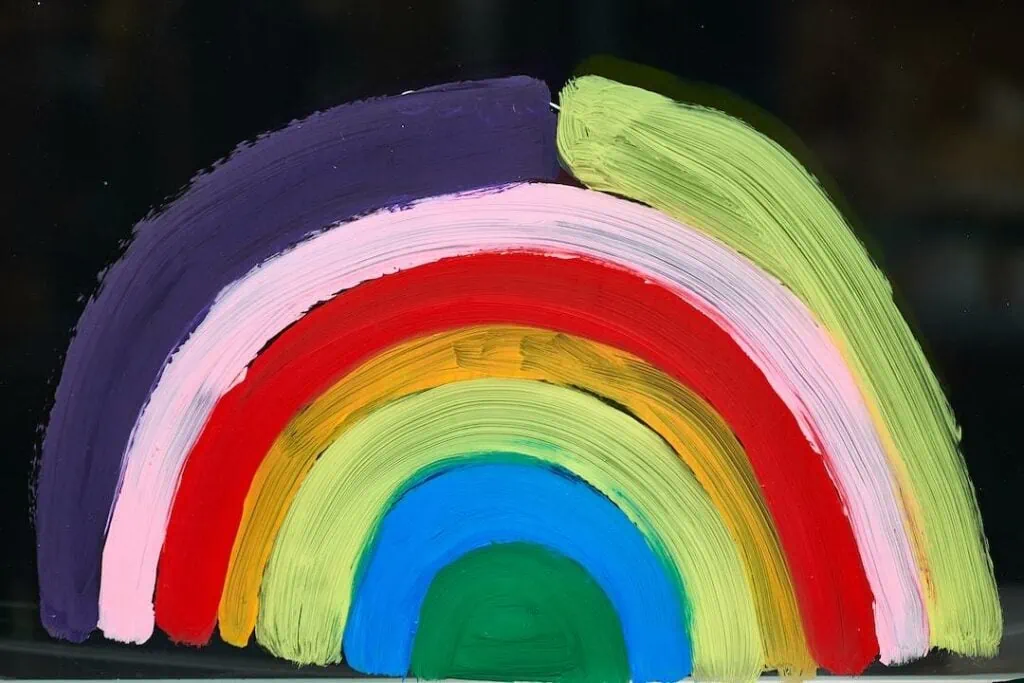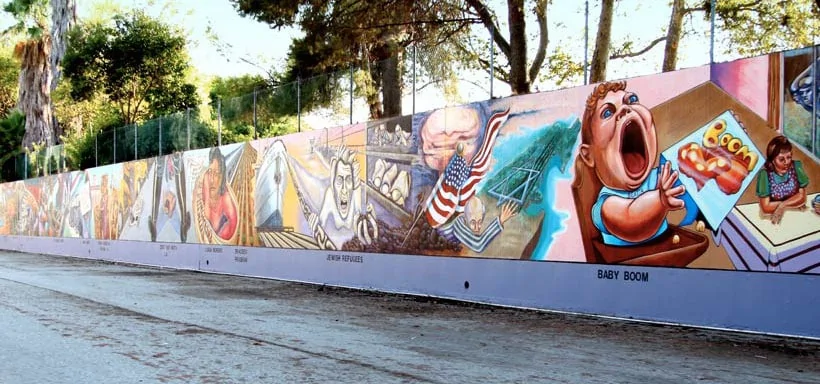Bisexual erasure is a complex issue that many people grapple with.
No need to be discouraged, though! We’re here to shine some light on this topic!
This term refers to the tendency to ignore, remove, falsify, or reexplain evidence of bisexuality in history, academia, news media, and other primary sources.
In doing so, we often overlook the vibrant diversity within our communities – an oversight that can have real-world impacts.
Despite being a prevalent form of discrimination faced by individuals attracted to more than one gender, bisexual erasure remains largely unaddressed.

The Phenomenon of Bisexual Invisibility
Bisexual erasure, or bisexuality invisibility, is a form of discrimination that affects individuals attracted to more than one gender. It undermines the legitimacy and visibility of bi+ people despite research indicating that approximately 4% are sexually attracted to multiple genders.
Many bi+ individuals feel alone due to being disregarded by mainstream society and LGBTQIA+ communities, leading to an absence of acknowledgment for this group.
Manifestations within Society
In our society, heterosexual individuals often make assumptions about someone’s sexual orientation based on the gender of their current partner. For example, if a woman is dating a man, she may be presumed to be straight, whereas if she is in a relationship with another woman, people might label her as a lesbian, disregarding her true identity as being bisexual.
Sadly, such misunderstandings extend beyond relationships too, with most assuming sexual attraction must fit into binary categories: gay or straight. This frees those who experience fluid attractions from these definitions, an unfortunate reality known as bisexual erasure.
Mainstream media has historically contributed significantly towards perpetuating stereotypes about bisexuality, which further fuels bi invisibility. Characters portrayed as bisexual are often depicted as overly promiscuous or untrustworthy, a harmful misrepresentation reinforcing negative misconceptions around this legitimate sexual orientation. A study conducted by the Bisexual Resource Center found very few openly bi characters represented across television shows compared with roles for gay men and women, further contributing towards societal ignorance regarding bisexuality.
Bisexuality Erasure within Queer Communities
Even within queer communities, there can be instances of biphobia, where unintentional biphobic remarks are made due to the stress experienced by marginalized individuals or internalized prejudice against non-monosexual identities like pansexuality. This unfortunate reality makes many feel excluded even in spaces meant to be inclusive, creating unnecessary tension between different groups within the LGBTQIA+ community and further exacerbating the issue.
Editor’s Note:
Bisexual erasure, a pervasive form of discrimination, renders those attracted to multiple genders invisible in society and even within LGBTQIA+ communities. Misconceptions are fueled by societal norms and media stereotypes, causing isolation and marginalization for bisexual individuals.
The Mental Health Impact of Bisexual Erasure
Bisexual erasure or bisexuality invisibility is a widespread issue that deeply affects the mental health of bisexual individuals. It’s more than denying someone’s sexual orientation; it’s about negating their existence and experiences, which can lead to severe psychological distress.
Studies from reputable sources like the National Institutes of Health (NIH) have shown that bisexual men and women are significantly more likely to contemplate suicide than gay men, lesbians, or heterosexual people. This emphasizes the necessity of increased awareness and assistance in our culture.
Minority Stress Among Bisexual Individuals
To grasp why these issues arise in the first place, we must delve into minority stress theory. Minority stress refers specifically to chronically high stress levels faced by members of stigmatized minority groups – such as those identifying as part of the LGBTQ+ community, including bi people.
Examining this concept has been done extensively with homosexual people, but insufficient focus has been given to its effects on those who are bisexual. However, existing research indicates that it also plays a significant role here: internalized biphobia often leads to depressive symptoms among them.
Facing prejudice outside queer communities from straight people and inside them only amplifies these feelings, deepening the sense of loneliness each passing day.
Navigating Relationships Amidst Bi-Erasure Challenges
Dating relationships come with a unique set of challenges when you’re navigating the world while being subject to constant societal bias in the form of ‘bisexual erasure.’ Being misunderstood by partners and finding supportive networks can be difficult due to a lack of representation in mainstream culture, making the experience even harder to endure and overcome successfully without adequate resources.
Inclusive Healthcare Practices for Better Outcomes
In addition to the adverse impacts on an individual level, there are systemic inequalities in healthcare access for individuals who identify as attracted to multiple genders compared to those who exclusively identify as same-sex or opposite-sex. As a result, there is a lack of comprehensive understanding regarding their unique needs and requirements.
Editor’s Note:
Bisexual erasure, a pervasive issue that negates the existence and experiences of bisexual individuals, has profound mental health impacts. This invisibility fuels higher suicide rates among bisexuals compared to other sexual orientations. Minority stress theory sheds light on this phenomenon, revealing chronic high stress levels due to societal prejudice and internalized biphobia. Bisexual individuals also face unique challenges.
Challenges in Navigating Relationships as a Bisexual Individual
The path of love and relationships is rarely without its bumps, but for bisexual individuals, the journey can be even more complex. The culprit? A phenomenon known as bisexual erasure or bisexuality invisibility.
This form of discrimination leads to the denial that bisexuality exists, which results in invalidation and marginalization. These misconceptions about being attracted to men and women often stem from misguided beliefs such as it’s just a phase or an indecisive state between homosexuality and heterosexuality.
Negating Stereotypes: An Essential Step Towards Acceptance
Stereotypes around bisexuality significantly impact their dating experiences with potential partners who may make biphobic statements based on harmful myths surrounding this sexual orientation. This includes false assumptions like all bisexuals are promiscuous, untrustworthy, or incapable of monogamy.
This prejudice makes finding supportive partners harder and contributes to feelings of isolation within heterosexual communities and LGBTQ+ people alike – including transgender folks identifying themselves as bi.
A key challenge lies in promoting understanding around non-monosexism – acknowledging attraction isn’t limited exclusively towards one sex/gender – which could help end bi-erasure regarding romantic relations.
Organizations like the Bisexual Resource Center aim to educate society about diverse sexual identities while advocating against discrimination faced by these sexually attracted individuals across various gender spectrums.
Fostering Open Communication: Building Trustful Relationships
Navigating successful relationships requires open communication regarding one’s own sexuality, which helps foster mutual respect among current partner(s). Honest discussions ensure everyone feels safe enough to express their true selves, regardless of whether they’re engaging in mainstream cultural activities or queer circles.
Healthcare Disparities Faced by Bisexual Individuals
Bisexual invisibility isn’t only a social problem; it also has implications for health. Research shows that bisexual people are often less forthcoming about their sexual orientation with healthcare providers than gay men and lesbians.
This reticence can lead to an incomplete understanding of the patient’s overall well-being, potentially resulting in substandard care or overlooked diagnoses. The fear of stigmatization and identity invalidation within healthcare settings only compounds this problem.
Recommendations for Inclusive Healthcare Practices
To address these disparities head-on, we need proactive measures from medical professionals and institutions to foster more inclusive environments for all patients – regardless of their sexual identities.
- Educational Training: As part of ongoing professional development programs, there should be specialized training sessions to educate medical practitioners about bisexuality. This would help them understand the unique health challenges faced by bisexual individuals, thereby ensuring appropriate support is provided.
- Policies Against Discrimination: Instituting policies against discrimination based on one’s sexuality is another crucial step towards inclusivity in healthcare settings.
- Culturally Competent Care: Cultivating an environment where every patient feels respected irrespective of their sexuality could make significant strides toward ending bi-erasure.
The goal here is to end bi-erasure. To ensure such practices become mainstream across all areas within our society – not just limited to urban centers like San Francisco – nationwide efforts aimed at increasing awareness about bisexuality among both medical practitioners and the general public are necessary.
Moving Beyond Policies: Creating Safe Spaces
There is an urgent need to establish safe environments where individuals can freely share information about their sexuality without fearing discrimination or bias, even from healthcare professionals. This entails creating open lines of communication where everyone recognizes the significance of honoring an individual’s privacy while acknowledging and embracing the diverse range of identities present in our society today. Ultimately, delivering high-quality care requires adopting a comprehensive approach that values and respects each person’s distinct backgrounds and experiences rather than solely concentrating on one aspect.
Editor’s Note:
Bi+ erasure in healthcare can lead to overlooked diagnoses and substandard care. We need proactive measures like specialized training for medical practitioners, anti-discrimination policies, and culturally competent care to counter this. It’s crucial to create safe spaces where individuals feel comfortable discussing their sexuality without fear of judgment or prejudice.
The media, in its various forms, holds a mirror to society. It can either reflect the rich diversity of our world or distort it with harmful stereotypes and erasure. This is particularly true for bisexuality.
Bisexuals often find themselves between a rock and a hard place, navigating heterosexuality and homosexuality. Yet their unique experiences are frequently overlooked by both groups, leading to what’s called bisexual erasure. In this scenario, media representation becomes crucially important.
A Look at Television Shows
Television shows wield significant influence over societal perceptions about sexual orientation. Unfortunately, many TV series perpetuate damaging myths around bisexuality, such as confusion or promiscuity, further marginalizing bisexual men and women within mainstream culture.
However, some television programs have started challenging these misconceptions through nuanced portrayals of bisexual characters. For instance, “Brooklyn Nine-Nine” features Rosa Diaz, who openly identifies as bi while navigating her personal and professional life without resorting to any cliched tropes related to sexuality.
On the flip side, social platforms offer valuable spaces for open dialogue and discussion where queer communities, including non-binary and transgender folks, share their stories and challenge biphobic statements, thus promoting global visibility and acceptance. But they also risk becoming echo chambers of misinformation and prejudice if not handled sensitively and inclusively. Therefore, it is critical that we leverage this power responsibly and foster more inclusive narratives online and offline alike.
Striving for Better Representation in Mainstream Culture
We must continue pushing boundaries until every individual, regardless of gender identity, feels acknowledged and affirmed. Being sexually attracted to multiple genders simultaneously or at different times is not limited to being lesbian or gay but encompasses a wide range of identities within the LGBTQ+ community. It is crucial that we celebrate and respect diverse sexual orientations, whether they are heterosexual, homosexual, pansexual, and so on. By working together, we can help eliminate the stigma associated with minority stress experienced by LGBTQ+ individuals and foster a healthier and happier society for all.
Editor’s Note:
The media’s portrayal of bisexuality can either reinforce harmful stereotypes or challenge them, highlighting the need for better representation. While some TV shows and social platforms are making strides in visibility, we must continue to push for diverse narratives that validate all identities within the LGBTQ+ community.
Conclusion
Bisexual erasure is a pervasive issue, often hidden in plain sight.
It’s about invisibility and the denial of existence and experiences.
The impacts are far-reaching, from mental health to relationships and healthcare access.
Mental health challenges are heightened for bisexual individuals due to minority stressors.
In relationships, they face unique hurdles fueled by misunderstanding and isolation.
Healthcare disparities arise as many shy away from disclosing their orientation, fearing stigma or dismissal.
Recognizing these troubles is a beginning point towards transformation. But it doesn’t stop there.
We must strive for more representation in media, inclusivity in healthcare practices, and understanding within our communities.
All said and done, remember that your identity matters!
If you’re looking for a supportive community where you can freely express your sexual orientation without fear of erasure or judgment, HER, a lesbian dating app designed with gender identity and various sexual orientations in mind, could be just what you need! Join us today on HER.








